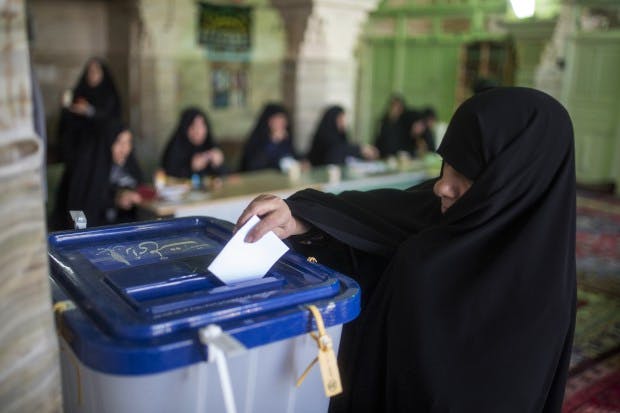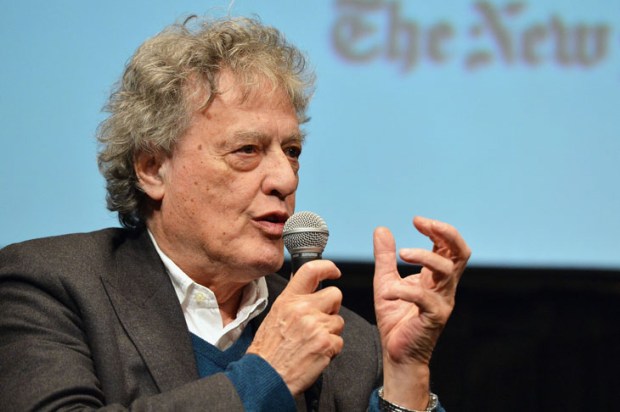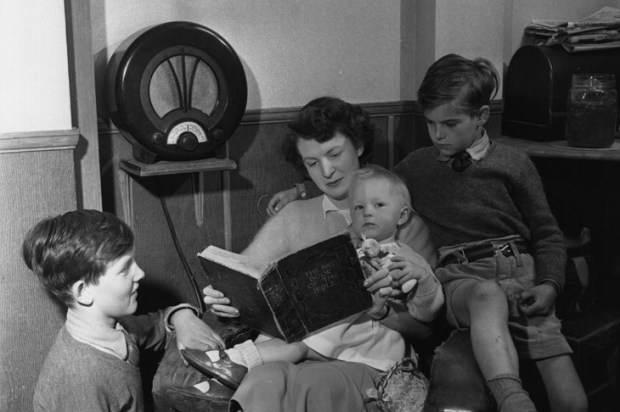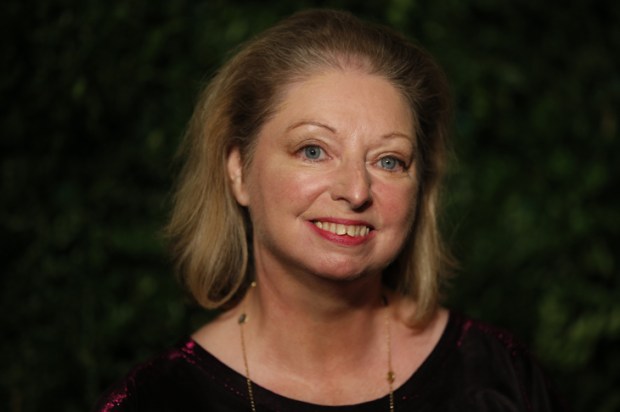What makes the World Service so different from the rest of the BBC? I asked Mary Hockaday, the controller of the English-language service. And how does it justify the additional £289 million funding (spread over the next five years) which the Treasury granted it at the end of last year? Will that money, which could after all otherwise go to welfare or the NHS, be well spent?
‘News is our core,’ says Hockaday. ‘It’s all about the now.’ Which sounds a bit Day Today. Anyway, isn’t this what BBC News and Radio 4 do already? It’s not just about presenting the news, Hockaday adds, but putting it in context. This last bit the World Service certainly does better than anyone else. On the World Service we can find ourselves one minute inside Iran (Newshour Extra gave us 60 minutes talking to Iranians on the elections there), and the next in Athens for World Questions, with Jonathan Dimbleby chairing a ‘live’ debate on whether or not Greece should stay in the Eurozone.
The World Service also has a very different audience profile from, say, Radio 4 or 5 Live. It’s much younger, and much more digitally active. Its programmes, too, sound very different, simply because its focus is not London or Newcastle but Riga, Tehran or Detroit. Its perspectives on events are refreshingly different, which is why it’s such an invaluable antidote (or should I say complement) to the Today programme, say, or Money Box Live. On Newshour Extra, for example, which was broadcast on Saturday just as the elections were taking place in Iran but before the results were known, we were given a whole hour just on Iran with an all-Iranian panel, chaired by Owen Bennett Jones, discussing quite how much change is happening there.
No one is allowed to challenge the authority of the Supreme Leader, and yet the grandson of Ayatollah Khomeini (who in 1979 established the Islamic republic and issued the fatwa on Salman Rushdie) has not been allowed to stand in these elections, suggesting an attempt to write Khomeini out of Iran’s past and also its future. Sanctions, too, we learnt, did have an effect, quadrupling the price of Kellogg’s cornflakes, but perhaps not as much as those who imposed them had hoped. If you were rich enough and prepared to pay the price, those cornflakes could still be obtained pretty easily.
It’s all in the detail, connecting us up with people with whom we would otherwise have no connection by creating intimate, immediate conversations through the ether. In Athens, for instance, it was intriguing to hear a panel of Greek politicians, economists and union officials talking about the Eurozone just as we are being expected to make up our own minds about whether to stay or go. A young architect in the audience asked why she should stay in Greece, with little hope of finding a job that used her qualifications. Yet in the end it was the immigration crisis that was thought to be the most critical, for Greece, which has seen more than 800,000 migrants arriving in the last year, and for Europe.
In My Perfect Country on Thursdays, meanwhile, Fi Glover, with Martha Lane Fox (the entrepreneur) and Professor Henrietta Moore of the Institute of Global Prosperity at UCL, has been looking at ideas and initiatives from across the world that could be brought together to construct an ideal state. Estonia, for instance, formerly of the USSR, now has the fastest broadband in the world, and has given every citizen the opportunity to take advantage of the new digital technologies. Could that be replicated in other countries at the same extraordinary speed of change? Last week, in Michigan, Glover talked to those involved in implementing a campaign to reduce the number of suicides, which was escalating as a consequence of the economic downturn, especially in Detroit.
Simply by deciding to bring the topic into the open, and asking every patient in hospital whether or not they had ever had suicidal thoughts, it has proved possible to reduce the suicide rate almost to zero. Everybody is considered to be at risk. No one is regarded as immune from depression. But perhaps most effective of all was the decision not just to give good care for those with depression but to provide ‘perfect’ care and to make a zero suicide rate the goal. After all, if zero is not the goal what should the goal be?
It’s the audacity of the vision, that notion of a perfect result, and its universal application that’s unusual, talking to every patient about their thoughts on death, whether suffering from a physical or a mental ailment. An idea born out of the special circumstances of Detroit but as Glover and her team agreed definitely one for the perfect country they are looking to create.
Got something to add? Join the discussion and comment below.
Get 10 issues for just $10
Subscribe to The Spectator Australia today for the next 10 magazine issues, plus full online access, for just $10.














Comments
Don't miss out
Join the conversation with other Spectator Australia readers. Subscribe to leave a comment.
SUBSCRIBEAlready a subscriber? Log in